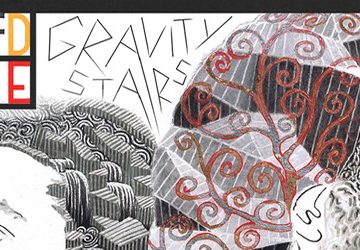One of the bands that dominated the Alternative Rock music scene in the vibrant 1990s were The Cranberries. Armed with the brash sonic and lyrical strength of their breakthrough Grunge-influenced single “Zombie,” which hit number-one on the U.S. Modern Rock Tracks Chart and with its parent album’s going triple platinum within a year of release, the Irish band immediately catapulted to international popularity and caught the world by storm. However, if one really wants to know the actual musical roots and styling of The Cranberries that got to define their overall sound, then one has to start with their humble beginnings.
Founded in 1989, in Limerick, Ireland, the band that became The Cranberries consisted of the late Dolores O’Riordan (vocals, rhythm guitar), the brothers Noel (lead guitar, vocals) and Mike Hogan (bass), and Fergal Lawler (drums). In their on-and-off career as a group until the sad passing of O’Riordan early this year, the quartet had released seven studio albums – from 1993’s Everybody Else Is Doing It, So Why Can’t We? to 2017’s Something Else. Their music may have been associated by many people with the raw, confrontational energy of the ubiquitous “Zombie,” but much of their true vision and musical ethos actually resided in and were better defined by the pristine, immaculate, majestic, and innocent beauty of the songs that their first album contained.
Released on Monday, March 1, 1993, through Island Records, Everybody Else Is Doing It, So Why Can’t We? had documented clearly the then fledgling band’s blend of New Wave, Indie Pop, Alternative Rock, and Irish Folk sensibilities. What moment could be more appropriate to reassess this nascent offering than its 25th anniversary and the idea of giving yet another tribute to O’Riordan?
Everybody Else Is Doing It, So Why Can’t We? opened with the slow, haunting, Gothic, bluesy drag of “I Still Do,” which exuded lingering echoes of Cocteau Twins (“Lorelei”), The Cure (“If Only Tonight We Could Sleep”), and The Glove (“Sex-Eye-Make-Up”). This was followed by the album’s most melodramatic moment, the mellifluously undulating “Linger,” in which O’Riordan’s silky voice floated like a feather above a flowing stream of string orchestration. It would still fit onto a playlist that include other poignant, Tweepop-stylized songs such as “Here’s Where the Story Ends” by The Sundays, “Little Death” by Shelleyan Orphan, and “Eighties Fan” by Camera Obscura. The tempo turned a bit more driven and the mood brighter as “Wanted” played next. With “Still Can’t,” Noel’s jangly guitar styling started to surface even more self-evidently, complemented effectively by his brother’s punchy basslines and Lawler’s percussive drum playing.
The acoustically oriented ballad “I Will Always” emanated a rustic breeze of Irish Folk, serving as a beautifully woven blanket for O’Riordan’s subdued yodels and wails. Then came bursting next like a confetti of colorful and hopeful emotions was the graceful and flickering New Wave swing and sway of “Dreams,” which ended in a coda of traditional and Tribal Irish contrapuntal vocal interplay.
The Cranberries then took the listener even farther back in time with “Sunday,” which conjured an image of a picturesque Irish countryside. Afterwards, the vibes turned even slower and somber, and a bit more haunting and ominous, with the minimalist, acoustic flare of “Pretty.”
The second-to-the-last track, the mildly distorted “Waltzing Back” was actually a foreshadowing of the angst-ridden “Zombie,” which the world at large embraced wholeheartedly, enough to bequeath the little Irish band eventual global success. Finally, The Cranberries capped off the first juices of their creative fruits with the swelling rhythm and unapologetic sentiments of “Not Sorry.” They were not, indeed. After all, what followed next was the much darker and gloomier No Need to Argue.
Even non-enthusiasts of Alternative Rock and Indie Pop music mourned the sudden demise of O’Riordan on January 15, 2018, when she joined the ranks of other New Wave greats who long made their way, much earlier and in a similarly sad fashion, into the proverbial music heaven, such as Ian Curtis (Joy Division), Stuart Adamson (Big Country), Adrian Borland (The Sound), and Paul Hester (Crowded House), among a few more other restless, creative spirits. While the pain is still fresh, and the hearts still aching, render your own healing by lighting some candles and playing Everybody Else Is Doing It, So Why Can’t We? yet one more time. Commemorate its 25th anniversary as you sing an ode and pay respects once again to the beautiful spirit who lifted The Cranberries’ music to stellar heights with the power of her haunting voice and sonic wings.
Yes, everybody else tried to do it, but only a few managed to succeed. One of these were The Cranberries, which made timeless music until the end of the days of their enchanting and charismatic vocalist, Dolores O’Riordan. You will always be remembered, through the beat of your music in the pulsating hearts of people whom The Cranberries’ songs had touched. When you’re gone… tomorrow.






Beautifully written. Thank you. So I suppose you’d rate this album 5 stars, wouldn’t you?